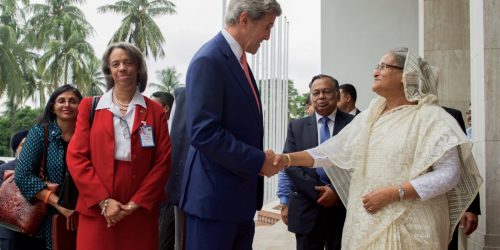The government of Bangladesh has approved a $26 million project to provide free solar home systems to 40,000 households in three hilly districts with uncertain prospects of being incorporated into the electricity grid by 2045.
Prime minister Sheikh Hasina approved the spending – the second phase of a project to provide free solar panels to households in the three communities of the Chittagong Hill Tracts area – on Tuesday at a meeting of the nation’s highest decision-making body, the executive committee of the National Economic Council.
Under the latest phase of the program, 2,500 320 Wp community solar systems will be installed at student hostels, orphanages and community centers in addition to the 40,000 home panels, and 42,500 people will receive training in maintenance of the systems.
Universal access
The previous, $9 million phase of free solar provision in the area saw 10,890 home systems, 2,814 community installations and 5,890 solar-powered cell phone chargers issued between July 2015 and June last year.
Although the government has a stated ambition of providing electricity access for all by next year, it was announced the solar home system program in the Chittagong Hill Tracts would not be complete until June 2023. Officials say 96% of the population has access to electricity.
Mohammad Hossain, director-general of power industry regulator Power Cell, told pv magazine universal electrification must be achieved, with grid infrastructure to be expanded with overhead lines and submarine cables and with solar panels used in hard-to-reach areas of a nation which already boasts 5.8 million solar home systems with an aggregate generation capacity of 248 MW. In addition to household systems, solar mini-grids will be expanded in off-grid areas, said Hossain. Bangladesh has 21 solar mini-grids with a further six under development.
Solar
The director-general said the Rural Electrification Board, the Northern Electricity Supply Company (NESCO) and the West Zone Power Distribution Company are working towards completing universal electric access and the Bangladesh Power Development Board will install 178,000 solar home systems in hilly districts by next year, with the help of state-run soft loan provider the Infrastructure Development Company Limited.
The Rural Electrification Board is due to complete its part of the mandate by installing 5,000 solar home systems in remote villages and NESCO will install similar systems and expand mini-grids to fill in the gaps in its mandate, which mostly concern island communities.





